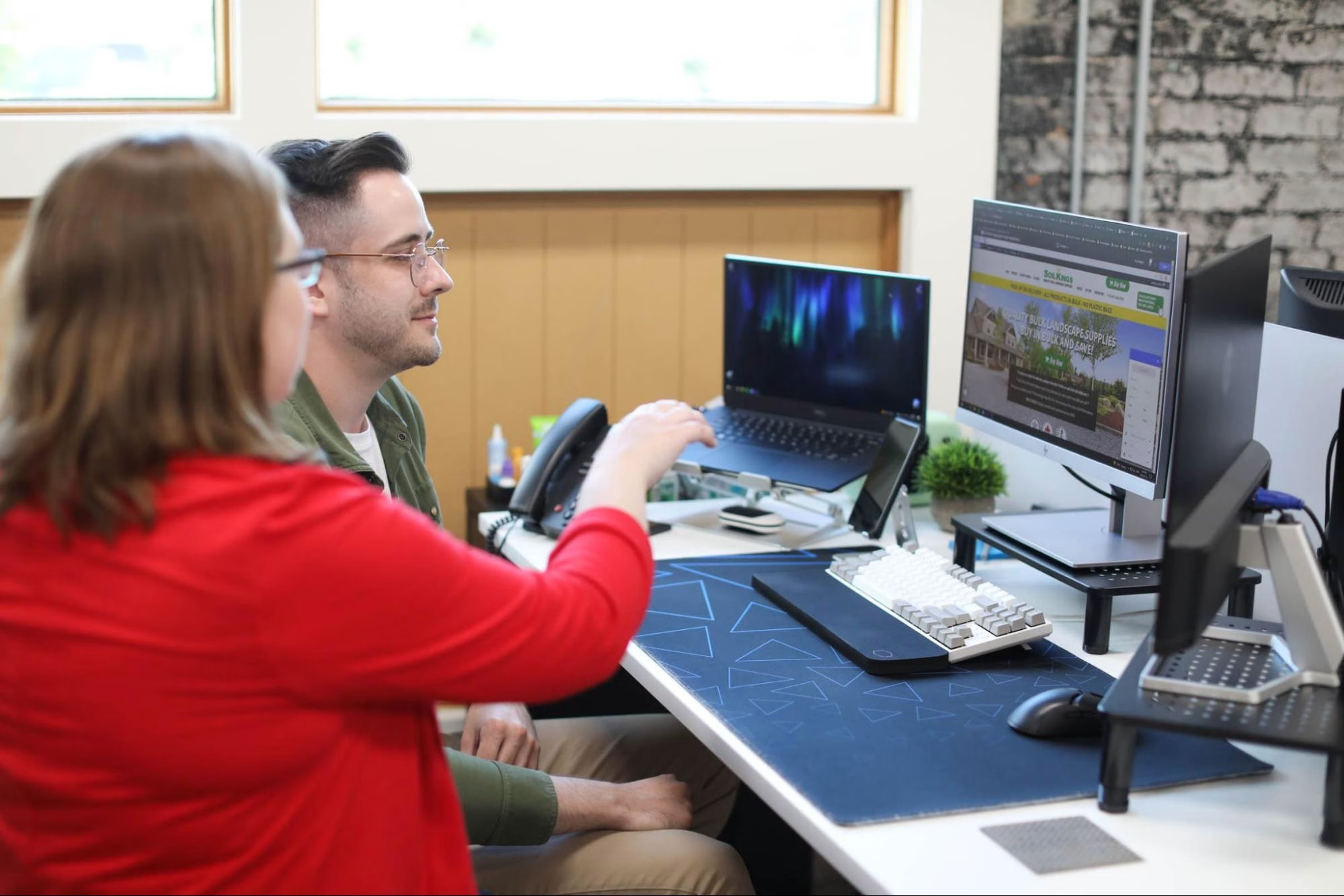Consumers are constantly searching for the best products and services offered near their location. 46% of Google searches are looking for local information and 88% of searches for local businesses result in either a call or a visit to the business within 24 hours. Local SEO helps your business stay relevant and is a powerful tool for advertising. However, local search engine optimization requires a strategic and targeted approach.
What is local SEO?
Local SEO (Search Engine Optimization) is the practice of optimizing a business’s web presence for increased visibility in local and localized organic search engine results. It’s similar to organic SEO, but with an added geographical component. Using local content, social profile pages, links and citations, businesses can improve organic traffic from searches performed by customers in nearby areas.
Why is local SEO important?
Local SEO allows people to find information about your business quickly and easily, making them one step closer to a transaction with your company. It allows you to be discovered online, increasing your opportunity for sales.
How do you improve Local SEO?
There are a wide array of technical and creative techniques to convince search engines that a business should be prominent in their results as a relevant answer to online searchers in close proximity.
- Optimize for Google my Business: This is a tool to help your business meet Google’s requirements. You need to:
- Create and verify a Google My Business page
- Use Google Posts within your account
- Encourage your customers to share reviews online
- Respond authentically to reviews, specifying a location.
- Engage on social media: Share your Google My Business page on social media to further align social and search.
- Ensure correct information: Include your business name, address and phone number on your website and social media pages, including them in the footer and/or header. Make sure they’re accurate. If Google can’t determine which information about your business is correct, it may not show your business in search results.
- Improve your internal links: This will support website navigation, assist with information architecture, aid website hierarchy and distribute authority/ranking power among pages.
- Optimize content: Every new blog post is a fresh indexed page for your site on which to target a geographic search phrase, a new opportunity to get found in the SERPS (search engine result pages). Optimize your content by using keywords in the URL, title, header, meta description and body.
- Add location pages: A location page provides users with your information (name, address, phone number, hours, parking/transit information, promotions, testimonials). Try including a locally descriptive “About Us” page.
- Create local content: Hone your focus and write about local industry and local news to attract a local audience. A map of local services and a calendar of city-wide events provide value and contain relevant information. Incorporate local keywords in your content.
- Ensure you’re mobile-friendly: The majority of consumers/clients use mobile devices to look up reviews, find directions and search for contact information. 78% of location-based mobile searches result in an offline purchase. Make it easy for your prospects/customers to find you by making your site mobile-friendly.
- Increase inbound links: Every inbound link lets Google know you’re a legitimate company and raises your domain authority. Increase these links through guest blog posting, scholarships and/or sponsorships/partnerships (Chamber of Commerce, licensing bureaus, trade associations, resellers, manufacturers, affiliates). Sponsor a webinar. Host a community event. Act as a resource provider for your community
- Encourage reviews as they optimize your Google My Business presence and encourage local customers. Ask for a review after the close of a sale. Send a post-purchase email/text asking for a review. Respond to all reviews in a professional manner; thanking reviewers and addressing complaints.
- Optimize for voice search: Consider how people ask questions when they speak into devices. Adjust your content to fit the conversational tone of speaking. Make your information readily available.
- Utilize online business directories (Yelp, Foursquare, MapQuest, Yellowpages) to increase the visibility of your business name, address and phone number and boost your local SEO. Include a backlink to your website and a thorough description of your business.
Finding current information is important to consumers making it essential to stay on top of local SEO. Ensure nearby online searchers can find, like, connect with and choose your local business. Develop a local SEO strategy. If you have a storefront or service area, local SEO will help your audience find you.
Need help with your local SEO strategy? Call us at (403) 456-0072 or email [email protected], Allow us to be your very own marketing department! Connect with our tightly-knit team of knowledgeable digital-first consultants, each eager to help your business grow. Contact Us today.
How useful was this post?
Click on a star to rate it!
Average rating 5 / 5. Vote count: 1
No votes so far! Be the first to rate this post.

















